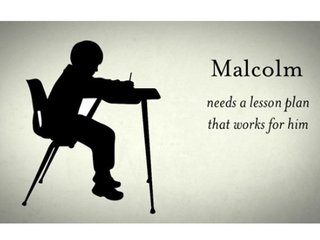M&A activity in the warehouse robotic space
Robots are taking over the heavy lifting work inside warehouses
Read more...
Want a pretty sobering statistic for your Monday morning? Only one in three U.S. high school students will graduate this year. And graduation rates are steadily declining year by year. We’re not that far away from only seeing one in two students finishing high school.
Thirty or forty years ago, that wouldn’t have been too bad. A high school dropout could still potentially earn enough to feed a family on. But that’s not the case today. Between 1974 and 2004, the annual earnings of families headed by a high school dropout declined by nearly one-third. High school dropouts are also more likely to struggle with unemployment as adults, receive public assistance, and be incarcerated. Additionally, they’re less likely to land a job with health benefits.
Dropouts from the class of 2010 alone will cost the U.S. more than $337 billion in lost wages over the course of their lifetimes. Just increasing the graduation rates of students of color to the levels of white students by 2020 would boost the economy by $310 billion.
For students who are already incarcerated or court-involved, the future is already an uphill battle. It doesn’t help that the high school graduation rate among those students is an appalling 15%. That’s five out of six incarcerated students dropping out of high school. There are 3.5 million court-involved students in the U.S., which means 2.97 million of those students won’t graduate this year.
U.S. Secretary of Education Arne Duncan has spoken of his aim to utilize more technology to improve graduation rates and test scores in the U.S., so it makes sense that the Department of Education approached one of the most innovative, cutting-edge edtech platforms in the country for a new initiative. The new program being announced today involves a collaboration between adaptive learning technology platform Knewton and educational publisher Houghton Mifflin Harcourt to deliver a new learning solution, SkillsTutor Powered by Knewton, to the nation’s court-involved youth.
“It’s just the right thing to do,” said COO David Liu, in an interview. “Our mission is to personalize education for every student on the planet, if we can improve student outcomes—help people learn more efficiently and effectively—this is what we live and breathe here.” He added: “This is about changing lives. These students will have a better shot at life.”
As a refresher, Knewton has developed a unique adaptive learning technology platform that tailors a lesson to each individual student. The platform uses algorithms to continually assess a student to determine the correct pace, as well as where the student is struggling or excelling. The more a student engages with the platform, the more accurate it becomes at identifying his needs and strengths, to the extent that it can even determine how the student learns best (i.e., the student might learn best when he’s presented with two questions instead of four, or when playing games, etc.).
The technology not only identifies and adapts to the myriad ways in which students learn; it also maps out how concepts relate to one another so that it can deliver the right lesson at the right time.
SkillsTutor will leverage the Knewton platform to deliver highly personalized content developed by Houghton Mifflin Harcourt to incarcerated and court-involved youth, which Liu says is more complicated than it sounds.
“This is a K-12 product, but we need to make sure it’s appropriate for a student who might be older but reads or does math at a third-grade level,” said Liu. In other words, you don’t want to offer Dick and Jane stories to an incarcerated 16-year-old. (Why do we still have kids reading Dick and Jane stories at all?)
While there altruistic end-goal falls perfectly in step with Knewton’s overarching aim to personalize education for all students, there’s another gain here for the company: it can scale in the K-12 market. Until now, Knewton has been more widely used among higher ed institutions, where it’s delivered some pretty remarkable results. At Arizona State University, classes that have utilized the Knewton platform have seen pass rates increase from 64% to 75%, and withdrawal rates dropped by 56%.
SkillsTutor, which will offer a curriculum in academic subjects like reading and math, as well as career readiness, will be put to use under the guidance of the Consortium for Educational Excellence in Secure Settings. The 11-state consortium is led by David Domenici, an advocate for high-quality education in youth correctional facilities, who previously served as the founding principal of Maya Angelou Academy. Domenici and his staff are credited with transforming one of the country’s worst schools for incarcerated students into a model of excellence.
The issue that the DOE seeks to address in utilizing SkillsTutor is complex, and there's a lot of controversy surrounding youth incarceration. As much as one-third of all incarcerated youth will return to prison within a few years of their release. But research has shown that the greatest preventative against incarceration and poverty is education.
Liu tells me that the number of facilities that will be implementing SkillsTutor is still being worked out, but that the general idea is for states to be able to apply for funding to take advantage of the program.
Image source: businessinsider.com
Robots are taking over the heavy lifting work inside warehouses
Read more...The company also expanded access to 12 different provider types for male fertility care
Read more...Ezra's AI cancer screening platform will be available in 150 RAYUS locations
Read more...

